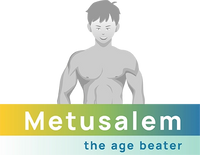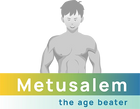Mastering the Art of a Balanced Diet for Optimal Health

Frequently Asked Questions
1. What is a balanced diet?
2. Why are micronutrients important?
3. How can I create a personalised meal plan?
4. What role does hydration play in a balanced diet?
5. How can exercise complement my balanced diet?
A balanced diet is the cornerstone of optimal health, functioning as the fuel for our bodies and empowering both our physical and mental well-being. However, with so much conflicting dietary advice circulating these days, creating an effective nutrition plan may seem overwhelming. This guide will untangle the complexities so you can confidently forge a balanced diet that supports your health goals.
Understanding a Balanced Diet
At its core, a balanced diet provides the right proportions of necessary nutrients to maintain our body's functions effectively. The key macronutrients in a balanced diet include:
- Carbohydrates: These are our primary energy source, found in foods like whole grains, fruits, and vegetables.
- Proteins: Essential for the growth and repair of tissues, proteins can be sourced from meat, fish, dairy, legumes, and nuts.
- Fats: Healthy fats, such as those found in avocados, olive oil, and nuts, are vital for hormone production and nutrient absorption.
The Importance of Micronutrients
Micronutrients, which include vitamins and minerals, play a crucial role in our overall health as well. While we require them in smaller quantities compared to macronutrients, their impact is significant. Vitamins such as Vitamin C, D, and B-complex, along with minerals like calcium and iron, contribute to immune function, bone health, and energy metabolism.
Dietary Guidelines for Optimal Health
There are some fundamental guidelines to follow when constructing a balanced diet. Here are steps to create a framework that supports optimal health:
1. Diversify Your Food Choices
Incorporating a variety of foods ensures you're not only getting a wide range of nutrients but also keeps your meals exciting. Consider exploring different cuisines or seasonal produce to enhance your diet.
2. Emphasise Whole Foods
Focus on consuming whole, minimally processed foods. These foods retain their natural nutrients and are generally healthier than processed alternatives, which may contain additives, sugars, and unhealthy fats.
3. Maintain Proper Portion Sizes
Understanding serving sizes can help you avoid overeating while ensuring you receive the necessary nutrients. A simple method is to use your plate as a guide: fill half with fruits and vegetables, one quarter with lean proteins, and one quarter with whole grains.
4. Stay Hydrated
Don’t overlook the importance of hydration. Water is essential to nearly every body function. Aim to drink at least eight glasses (2 litres) of water per day and adjust based on your activity level and climate.
5. Balance Macronutrients Wisely
Aiming for a good balance of carbohydrates, proteins, and fats is essential. Generally, a balanced diet consists of approximately 45-65% carbohydrates, 10-35% protein, and 20-35% fats. Make sure to include quality sources for each macronutrient.
Understanding Your Dietary Needs
Your dietary requirements can vary based on age, gender, activity level, and health goals. For instance, athletes or those very active may require more protein to assist recovery; this could include considering options such as creatine monohydrate UK for muscle optimisation. On the other hand, those looking to manage their weight may focus more on portion control and nutrient-dense low-calorie foods.
Creating Your Personalised Meal Plan
To build an effective meal plan, begin by evaluating your current routine. Track what you eat for a week to identify patterns and gaps in your nutrition. From there, start to reorganise your meal plan to incorporate a balance of the aforementioned macronutrient sources. Here’s a simple template to get you started:
Sample Meal Plan
- Breakfast: Overnight oats with berries and nuts.
- Lunch: Grilled chicken salad with a variety of colourful vegetables, topped with olive oil dressing.
- Snack: Greek yogurt with honey and fruit.
- Dinner: Baked salmon with quinoa and steamed broccoli.
- Hydration: Water infused with lemon throughout the day.
Mindfulness and Eating
Beyond just what we consume, how we eat can impact our digestion and overall satisfaction with meals. Mindful eating practices encourage you to pay attention to your hunger cues and savour the flavours of your food. Here are some tips to cultivate mindfulness during meals:
- Eat slowly and chew thoroughly.
- Limit distractions by turning off screens during meals.
- Listen to your body and stop eating when you feel satisfied, not stuffed.
Physical Activity: The Perfect Partner to Nutrition
While nutrition lays the foundation for optimal health, physical activity acts as the catalyst for realising those health goals. When combined with a balanced diet, exercise can amplify benefits and support various functions like maintaining muscle mass, improving mood, and boosting overall energy levels.
Finding the Right Activity for You
Exercise doesn’t have to be rigorous or time-consuming. Look for activities you enjoy and can incorporate into your daily routine. Whether it's walking, cycling, swimming, or yoga, the best exercise is the one you will stick to over time.
Measuring Your Progress
To ensure your balanced diet and exercise plan are working effectively, track your progress. Consider keeping a journal to monitor various metrics such as energy levels, weight changes, and how your clothes fit. These insights can guide you on necessary adjustments and encourage you to maintain healthy habits.
Seek Professional Guidance When Needed
While self-directed learning can be beneficial, don't hesitate to consult a professional if you're unsure where to start or if you have specific health concerns. A registered dietitian or nutritionist can offer tailored advice based on your unique needs and support you in developing a sustainable eating plan.
Support Your Health Journey
Adopting a balanced diet for optimal health is a continuous journey rather than a destination. Understand that each person’s path is unique; what works for one individual might not work for another. Therefore, embrace the process and be open to making changes based on your experiences.
As you build your diet strategy, remember that pairing nutritious foods with physical activity creates a more wholesome lifestyle. By embracing balance without extremes and listening to your body, you’ll unlock your ultimate health potential for years to come.
Explore another user's Shopify or Wix store by following this link to their store. Keep in mind that this is a promotional link, and we assume no responsibility for the content of the linked store.

